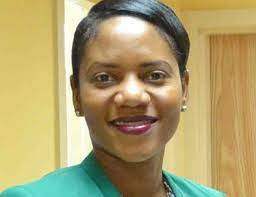Jamaican women are forking out millions of dollars annually to seek fertility treatment locally as the yearning to become mothers intensifies after the acquisition of successful careers and a comfortable lifestyle.
Reproductive specialist at the Hugh Wynter Fertility Management Unit, Dr. Sharifa Frederick, said some of the women who seek treatment are unable to conceive naturally because of their advanced age. As such, they seek help in the form of assisted reproductive technology, which is more commonly called In Vitro Fertlisation (IVF).
“A lot of women, especially over the age of 40, they have pursued their career or they have just found a partner, and so they have poor ovarian reserve,” she said.
Globally, demographers are reporting record numbers of women reaching the age of 35 child-free. The statistics have confirmed a major shift towards older motherhood, which experts have linked to advances by women in the workplace, the cost of rearing children, and people taking longer than before to establish significant relationships.

Photo source: Cages
Currently, seeking IVF treatment costs between US$10,000 and US$12,000, but the cost has not deterred a lot of couples from paying this price to have a child. In fact, Dr. Frederick said they see a 10 to 20 percent increase in the number of clients each year, which she attributes to more people learning about the services. Those who are unable to pay upfront are able to secure a loan. At least one financial institution offers a special loan for such treatment.
“Every year we are getting more women and couples to access reproductive care. They find a way to afford it,” Dr. Frederick told the Freedom Come Rain Newspaper.
The fertility specialist said one of the focus for the Unit is to develop ways to increase the chances of older women conceiving.
“There is a lot of research that is going in to try and modify older women eggs, so that they can perform better and enable women to get pregnant up until the age of 50,” she said.
Jamaica has seen a notable decline in the fertility rate among women, from a high of 5.7 births per woman in the 1960s to fewer than two per woman up to last year. Minister of Health and Wellness, Dr. Christopher Tufton, sees this as a major issue, as the declining fertility rate could have an adverse impact on the development of various sectors of the country, including the labour force. The minister said the less than two children per Jamaican woman is too low.
“The ideal number (of births per mother) should be just about two or a little over two. Now, what does that mean in its practical sense? It means that we have a population that is currently almost net neutral and on the verge of declining,” Tufton said during a function at the Mandeville Regional Hospital last July.
The health minister noted that while the decrease in birth rate will have significant “socio-economic implications” for the country, he is not advocating that “everybody go out there guh get pregnant.”
“It means that it will affect our labour force, our competitiveness, and frankly speaking, it will undermine, as a society, our capacity to realise our full potential,” stated Tufton of Jamaica’s declining fertility rate.






